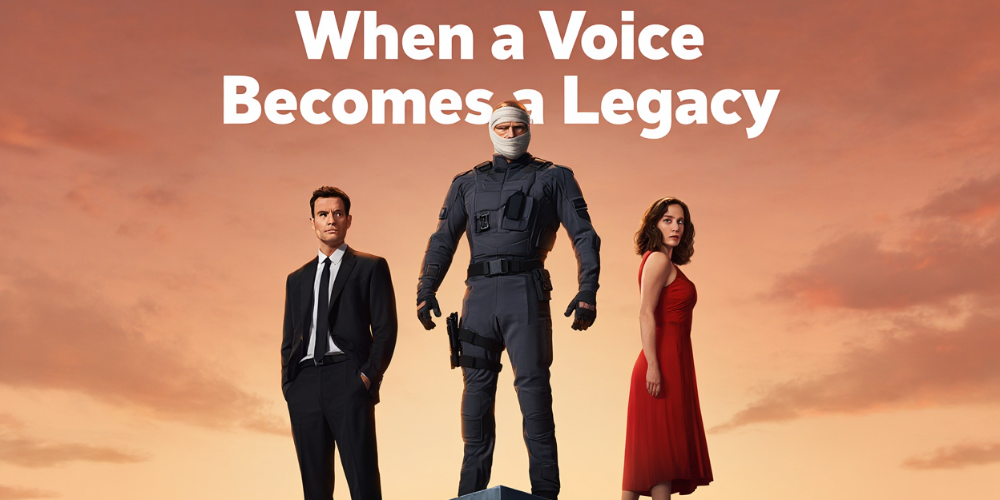When a Voice Becomes a Legacy: Snake, Hayter, and Delta’s Promise
2025-08-25

There are a few moments in games where sound alone pins you to time and place, and for many of us, the first gravelly greeting from Snake did exactly that. Hearing that timbre return to the conversation around Metal Gear Solid Delta: Snake Eater carries more than nostalgia; it signals a reckoning with how performance defines identity in a medium built on systems and stealth. The original voice behind Snake has said the role became the defining part of his life, and you can feel why. It shaped how we read codec exchanges, how we measured tension in the jungle, how we interpreted the ideals of mentor and student across a war-torn Cold War fable. As talk of the remake swells, the meaning of that voice becomes a touchstone for what a modern restoration should prioritize: not only 4K foliage and perfect parallax, but the intimate human cadence that taught a generation how to listen between the gunshots.
Snake Eater was always more than trick shots, traps, and tactical gadgetry. It was restraint, doubt, and resolve communicated through tone and breath, the way a single line could turn a mission briefing into a confession. David Hayter’s arc across Solid Snake and the younger Naked Snake threaded the series’ themes—duty, deception, and legacy—through small choices: a lowered register after a near miss, a wry lift when teasing Major Zero, the weary patience in a lecture from The Boss. You didn’t just clear an outpost; you navigated ideology with a voice as your guide. That’s why the remake’s commitment to honoring original performances matters so much. Konami has indicated it is preserving the classic deliveries while rebuilding the world with modern rendering, lighting, and animation. If done right, this keeps line readings intact while fusing them to richer facial rigs and refined CQC choreography, so expression and physicality work in concert rather than at odds.
When an actor says a role defined their life, it reveals how deeply an audience can root itself in a character. Hayter’s career spans writing and acting—he penned early X-Men screenplays and lent voices across anime and games—but Snake is the figure fans line up to thank. Conventions, cameo messages, and reunion panels show how a single performance can become a lighthouse for players who grew up parsing every codec ping. The community still debates his absence in later entries and celebrates each time he steps back into the orbit of the series, whether through promotional hosting, anniversary retrospectives, or narration that frames the franchise’s long memory. That emotional tether is why the Delta conversation goes beyond tech specs. It’s about stewardship: acknowledging the craft that gave subtext to camouflage gauges and stamina bars, and recognizing the actor who shaped how we hear espionage, loyalty, and betrayal inside a dense, systems-driven adventure.
Practically, Delta’s approach invites a fascinating audio-visual handshake. If the team is leveraging original recordings, they must re-master them with contemporary noise reduction, spatial mixing, and HDR-friendly dynamics, so the iconic rasp sits naturally within a soundstage full of denser jungle ambience, heavier foley, and modern reverb. On the gameplay side, expect two control philosophies—Classic for purists and Modern for players who want smoother traversal, refined aim assist, and improved camera behavior. Survival staples should return: hunting and curing, camo index tuning, and weapon maintenance, ideally cushioned by quality-of-life options like clearer inventory taxonomy, customizable HUD, scalable subtitles, and more granular difficulty sliders that separate detection sensitivity from enemy lethality. If you’re coming back, consider a first playthrough with minimal HUD aids to let the soundscape lead you; if you’re new, try Modern controls first, then switch to Classic to feel how level design was originally paced around tension and caution.
In the end, a great remake functions like conservation: it preserves the living essence of a piece while replacing the frame. That essence, for Metal Gear Solid 3, is inseparable from Snake’s voice and the performance behind it. Hearing the actor call it the defining role of his life doesn’t just validate fans; it clarifies the mandate for Delta. Keep the soul intact, let the foliage thicken, and let every rustle and breath serve narrative beats that already sing. Whether you’re returning to outfox patrols at Ponizovje or stepping into Tselinoyarsk for the first time, approach with curiosity. Listen for the pauses, not just the punchlines. Watch how the camera lingers on a gloved hand as doubt creeps in. If Delta can bridge that human nuance with contemporary craft, it won’t merely update a classic—it will reintroduce a legend in the language of today without losing the voice that made it unforgettable.






